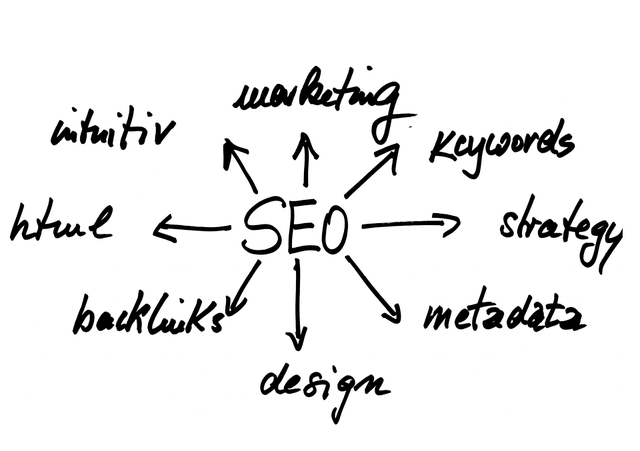Off-Page SEO is a strategic approach focusing on external factors like backlinks, social media engagement, and online reputation to improve search engine rankings and website credibility. Regular audits are crucial for adapting to the evolving digital landscape. By analyzing backlinks, referral traffic, local citations, and competitor strategies, businesses can optimize their content creation, build strong online reputations, boost domain authority, and drive organic traffic, thereby gaining a competitive edge in the market. Specialized tools like SEMrush, Ahrefs, and Moz aid in backlink analysis, keyword research, and tracking ranking changes, enabling data-driven decisions for continuous improvement.
Off-Page SEO audits are essential for optimizing your website’s visibility and ranking. This comprehensive guide explores the fundamentals of Off-Page SEO, highlighting why regular audits are crucial for long-term success. We’ll walk you through key components, from identifying backlink profile issues to analyzing referring domains and exploring competitive insights. Learn effective strategies using top tools, and discover post-audit techniques to boost your site’s Off-Page SEO performance.
Understanding Off-Page SEO: The Basics

Off-Page SEO refers to all activities conducted outside of your website, which impact your search engine rankings. It’s a broader term compared to On-Page SEO, which focuses on content and site structure within your pages. The main goal of Off-Page SEO is to build authority and trust in your brand by acquiring high-quality backlinks from reputable sources. This essentially tells search engines that your website is valuable and trustworthy.
Key elements of Off-Page SEO include link building, social media engagement, and online reputation management. Link building involves getting other websites to link back to yours, which acts as a vote of confidence in the eyes of search algorithms. Social media engagement helps build brand awareness and can indirectly influence your rankings through increased web traffic and shared content. Online reputation management ensures that any mentions of your brand online are positive, thereby shaping public perception and potentially driving more relevant traffic to your site.
Why Conduct Regular Off-Page SEO Audits?

Regular Off-Page SEO audits are essential for maintaining and enhancing online visibility. In today’s competitive digital landscape, search engines continuously update their algorithms to provide users with the most relevant results. To keep pace with these changes, it’s crucial to understand how your website interacts with external factors that influence rankings.
Off-Page SEO audits allow businesses to identify and address issues like low-quality backlinks, negative online reviews, and a lack of quality citations. By regularly assessing these elements, companies can build a robust online reputation, improve domain authority, and ultimately drive organic traffic to their website. This proactive approach ensures that your business stays competitive and relevant in the ever-evolving world of search engine optimization.
Key Components of an Effective Audit

An effective off-page SEO audit involves a comprehensive analysis of various factors that influence your website’s visibility and rankings beyond its boundaries. Key components include examining relevant industry and competitor analysis to understand market trends and high-value keywords. This involves researching backlinks from authoritative sources, evaluating referral traffic sources, and identifying opportunities for quality content creation that aligns with user search intent.
Additionally, an audit should assess the effectiveness of social media engagement and online reputation management. Analyzing local citations and directory listings ensures your business information is consistent across the web. By delving into these aspects, you can uncover valuable insights to optimize your off-page SEO strategy, thereby enhancing your website’s authority, click-through rates, and overall search engine rankings.
Identifying Backlink Profile Issues

Off-Page SEO audits are a crucial aspect of understanding and optimizing your website’s visibility in search engine results pages (SERPs). One key area to focus on during these audits is identifying backlink profile issues. Backlinks, or incoming links from other websites, significantly influence a site’s Off-Page SEO. A thorough audit should aim to uncover any negative patterns or signals that could be impacting your website’s rankings.
Common issues include high-risk backlinks from low-quality or irrelevant sites, which can lead to penalties from search engines. Conversely, a profile with few or low-quality backlinks may indicate a lack of authority or relevance in the eyes of search algorithms. Identifying and addressing these problems is essential for improving your site’s Off-Page SEO, ensuring it gains fair and robust rankings based on genuine, high-quality link profiles.
Analyzing Referring Domains and Links

Off-Page SEO involves a thorough analysis of referring domains and links, which are vital components in understanding your website’s online reputation and authority. By examining the backlinks from other websites, you can gain insights into the quality and relevance of the sources driving traffic to your site. This process helps identify high-value partnerships and potential areas for improvement.
Analyzing referring domains reveals the diverse range of sites linking to yours, offering a snapshot of your online presence. It’s crucial to assess the authority and trustworthiness of these domains, ensuring they align with your brand’s values and target audience. Link analysis also uncovers competitor strategies, allowing you to stay informed and potentially outmaneuver them in the competitive digital landscape.
Assessing Domain Authority and Trust

Off-Page SEO audits involve evaluating various external factors that impact a website’s search engine rankings. One critical aspect is assessing domain authority and trust, which are key indicators of a site’s overall health and reliability in the eyes of search engines. Domain authority refers to the strength and authority of a domain based on its link profile, backlink quality, and other relevant factors.
During an audit, professionals examine the number and quality of backlinks pointing to the website. High-quality backlinks from reputable sources significantly boost domain authority and trustworthiness. Conversely, low-quality or spammy links can have the opposite effect. By analyzing these external signals, SEO experts can identify areas for improvement in off-page strategies, aiming to enhance the site’s overall search visibility and performance.
Exploring Competitive Analysis Insights

An essential part of any comprehensive Off-Page SEO audit is a deep dive into competitive analysis. By examining the strategies and performance of your competitors, you gain valuable insights into what works in your industry. This process involves evaluating their backlink profiles, content marketing tactics, social media presence, and overall online reputation. Understanding these aspects helps identify opportunities for improvement and gaps in your own Off-Page SEO strategy.
For instance, a competitive analysis might reveal that your competitors are leveraging high-authority websites and influential bloggers to boost their visibility. It could also highlight successful content formats or effective social media engagement strategies that you may have overlooked. Such insights enable you to refine your approach, targeting relevant backlink opportunities, creating more engaging content, and optimizing your online presence to better compete in the market.
Tools for Efficient Off-Page SEO Audits

Conducting an efficient off-page SEO audit involves leveraging specialized tools that provide valuable insights into your website’s external links and online reputation. These tools help identify high-quality backlinks, assess competitor strategies, and uncover potential opportunities for improvement. Some popular options include SEMrush, Ahrefs, and Moz, each offering robust features like backlink analysis, keyword research, and site monitoring.
These platforms enable users to track changes in rankings, discover broken links on your site, and evaluate the quality of referring domains. By utilizing these tools effectively, businesses can gain a competitive edge by understanding their off-page SEO performance, identifying areas for optimization, and making data-driven decisions to enhance their online visibility and search engine rankings over time.
Strategies to Improve Off-Page SEO Post-Audit

After conducting a thorough Off-Page SEO audit, identifying areas for improvement is crucial to enhancing your online visibility. One effective strategy is to focus on building high-quality backlinks from reputable sources. This can be achieved by creating engaging content that naturally attracts links, such as in-depth blog posts or research papers. Collaborating with influencers and industry leaders through guest blogging or partnership opportunities can also significantly boost your link profile.
Additionally, optimizing your social media presence is a powerful Off-Page SEO tactic. Regularly sharing valuable content on relevant platforms increases brand exposure and encourages user engagement. Leveraging social signals like shares, likes, and comments can positively impact your search rankings. Ensure that your social media profiles are fully optimized with keyword-rich descriptions and consistent branding to maximize their SEO potential.
